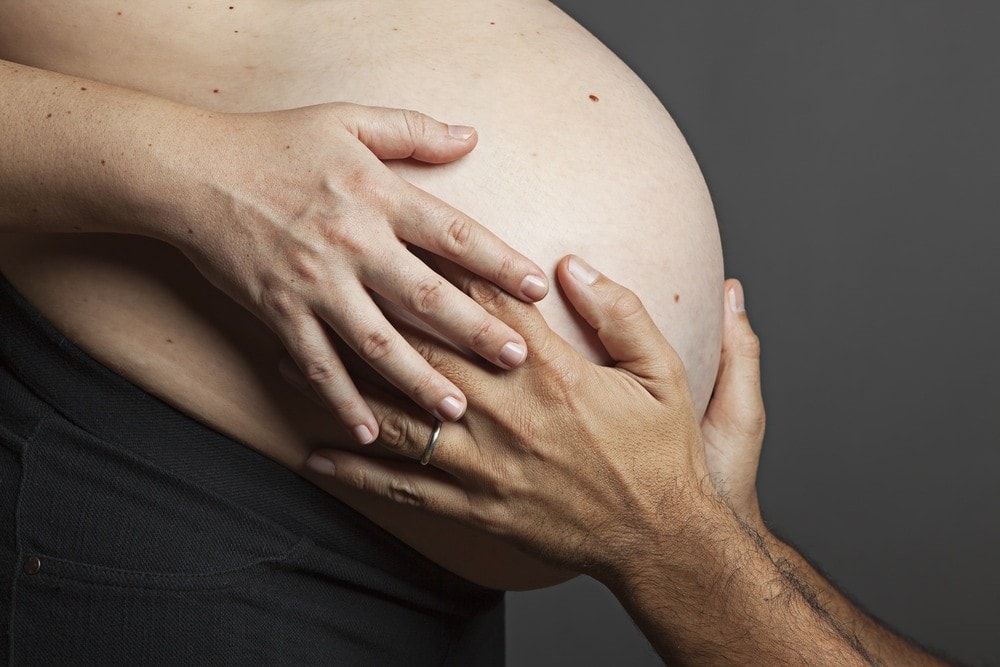35 Weeks Pregnant
You are 35 weeks pregnant, and you are almost there! Here is what you can anticipate during pregnancy week 35. Get the Fetal Life App for Apple and Android endorsed by the American Pregnancy Association.
What changes are occurring with your body at 35 weeks pregnant?
There are about 6 inches (15.2 cm) from your belly button to the top of your uterus. By this point, you should have gained anywhere from 24 to 29 pounds (10.9 to 13.2 kg). (If you have concerns regarding your weight gain or fundal height, consult your healthcare provider.) If you have felt short of breath, it is most likely because your uterus is now underneath your rib cage, causing you to have difficulty breathing. Towards the end of your pregnancy, your baby will drop, also known as lightening. The baby will settle deeper into your pelvis, which will relieve pressure on your diaphragm. While lightening can help you not feel as short of breath, it can also increase the pressure on your bladder, resulting in more trips to the bathroom.
How big is your baby?
Your baby is continuing to grow and most likely measures between 17 to 18 inches (43.2 to 45.7 cm) long and weighs 5 ½ to 6 pounds (2.5 to 2.7 kg).
What is happening with your baby?
The vast majority of your baby’s growth is complete by 35 weeks. Your baby’s kidneys are completely developed, and the liver is beginning to process waste. Because your baby has grown so much, you may notice a change in her movements as there is less room to move around. However, this does not mean you will not feel your baby move. Your baby’s kicking pattern should stay about the same.
What should you plan for at 35 weeks pregnant?
Between 35 and 36 weeks your health care provider will most likely want to begin seeing you once a week until you deliver. Your doctor may also ask you to begin counting your baby’s movements if you have not already begun to do so. The American College of Obstetricians and Gynecologists (ACOG) recommends that you time how long it takes you to feel 10 kicks, flutters, swishes, or rolls. Caring for Cryo Partners (CCP) believes that storing cord blood should be accessible to every mother. It is a type of insurance to protect your growing child from future conditions that might be diagnosed later and treated with the stem cells from that stored cord blood. CCP is the lowest venue for storing your baby’s cord blood. Keep the following in mind when tracking movements:
- Ideally, you want to feel at least 10 movements within 2 hours.
- Use a notebook or kick counts chart to record movements.
- If you have not felt 10 kicks by the end of the second hour, wait a few hours and try again.
- If you still do not feel much movement, contact your doctor.
- If you notice a significant decrease in your baby’s kick counts over a few days, contact your doctor.
Tips for making your pregnancy better
With the birth of your baby only a few weeks away, you need to begin finding a pediatrician. Talk with your OB/GYN, midwife, family, and friends to see if they have any recommendations for a pediatrician in your area. It is a good time to ask about policies regarding after-hour phone calls, nurse lines, immunizations, policies for scheduling and canceling appointments, etc.
Tips for mom’s partner
How involved do you want to be in the birth of your baby? Discuss the various options with both your partner and her health care provider. Will they allow you to cut the umbilical cord or videotape the birth? It is best to find out the answers to these questions beforehand. This allows time for any preparations to be made.
Want to Know More?






